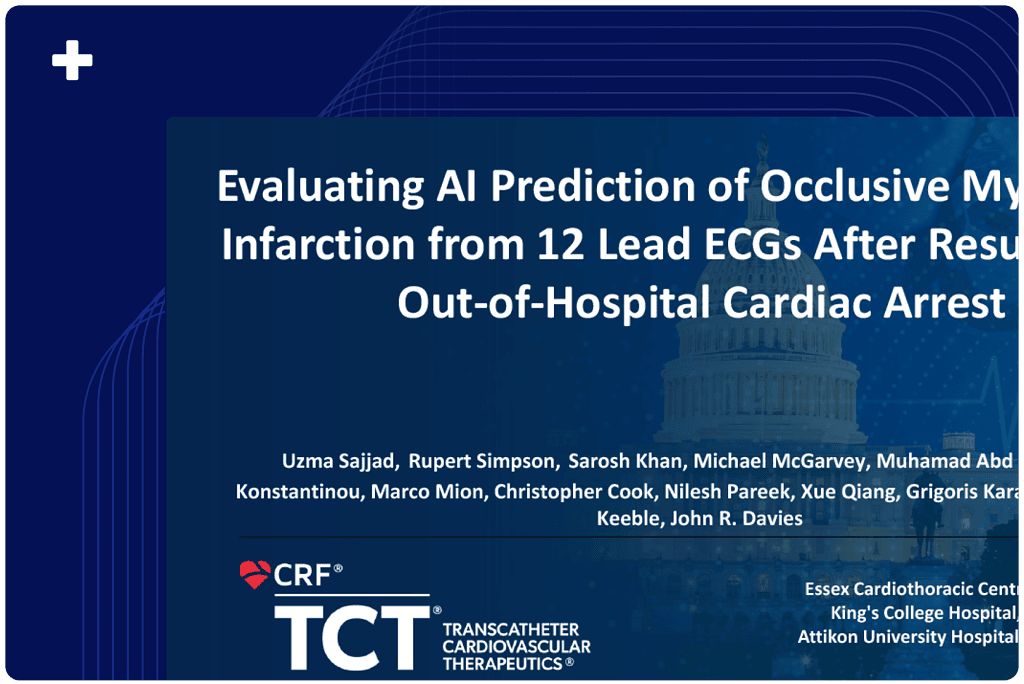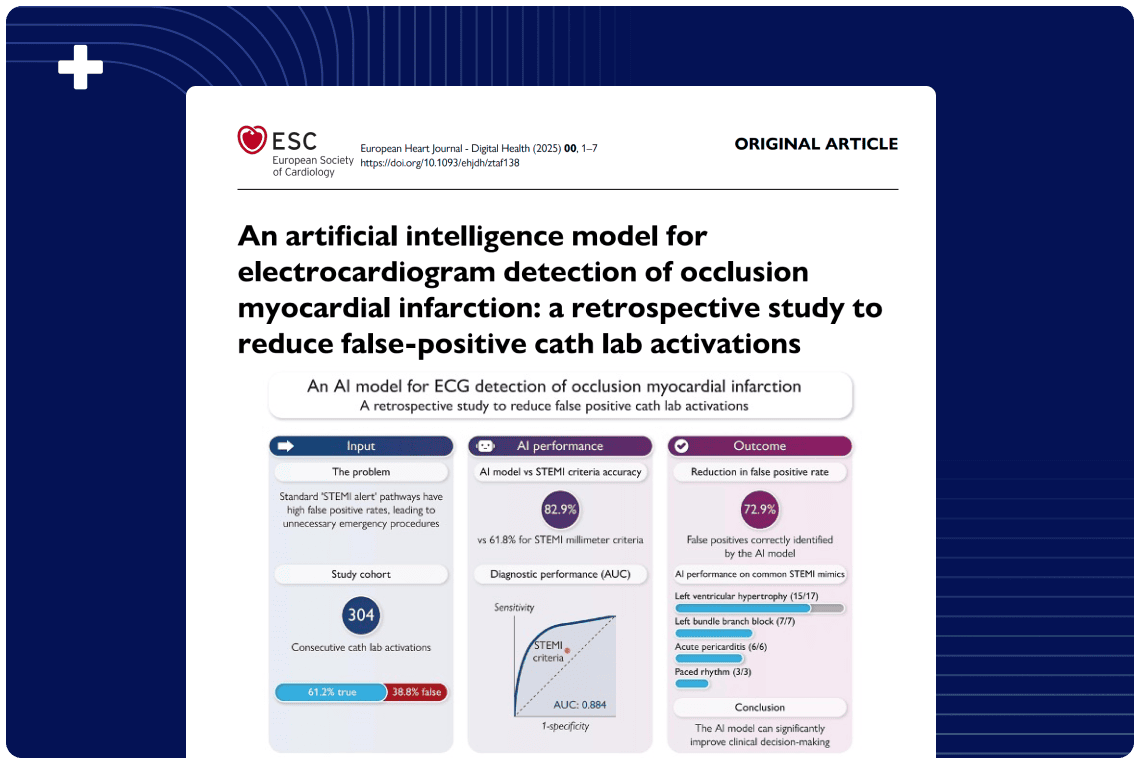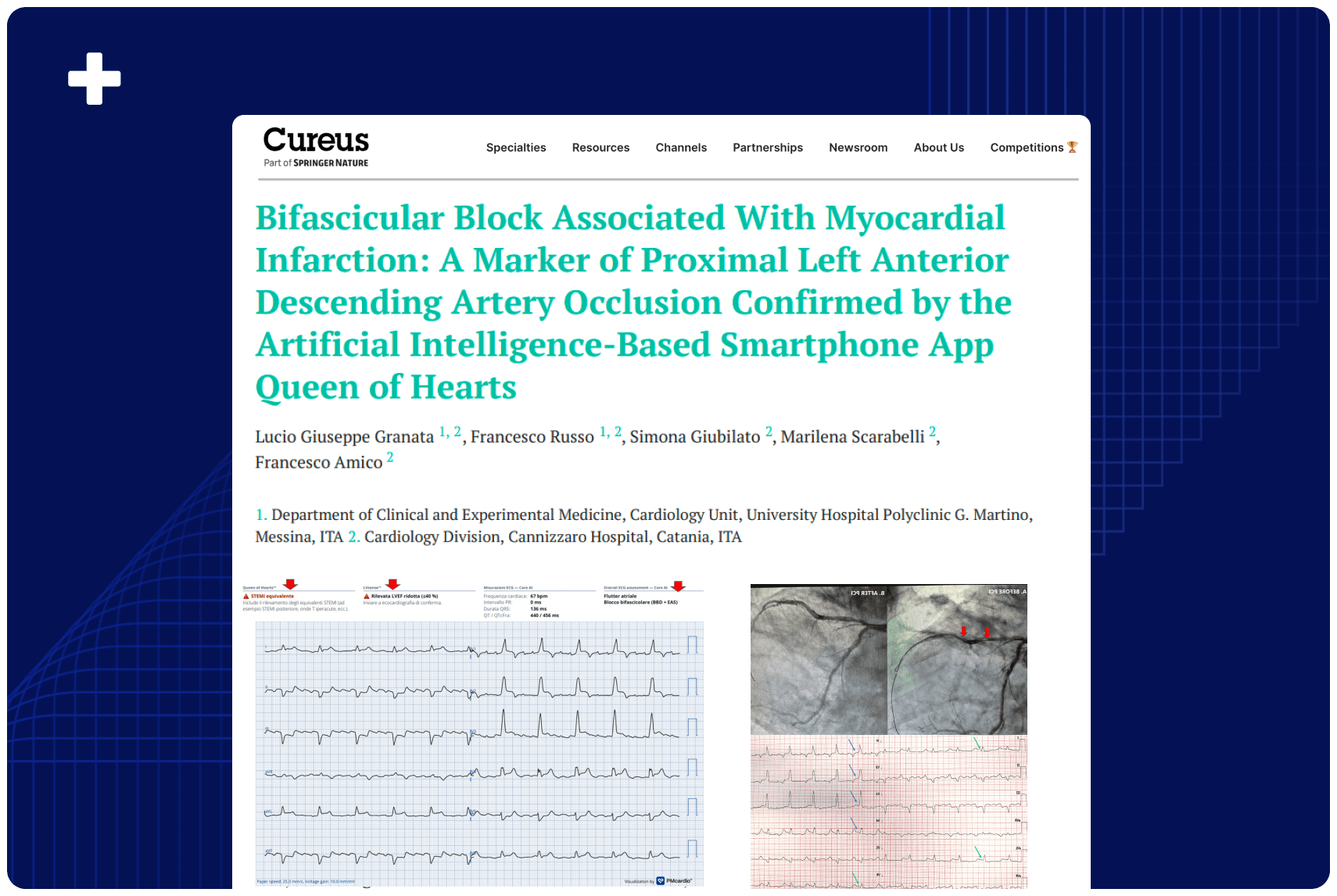Overview
Rapid detection of coronary vessel blockage in out-of-hospital-cardiac-arrest (OHCA) patients is crucial, as timely treatment improves survival and neurological outcomes. Standard ECG criteria often miss critical markers, delaying treatment. This analysis showed that the PMcardio STEMI AI ECG Model could detect them with high accuracy (88.7% sensitivity, 81.4% specificity), demonstrating its potential to speed up diagnosis and improve patient care.
Published In: Journal of the American College of Cardiology (JACC) – presented at the TCT’24 Annual Conference
Presented Date: October 27, 2024
Background
Identifying occlusive myocardial infarction (OMI) on electrocardiograms (ECGs) after resuscitated out-of-hospital cardiac arrest (OHCA) remains challenging. Even in the absence of ST-elevation, acute lesions may still be present. We evaluated OMI prediction in post-OHCA ECGs by an artificial intelligence (AI) model (PMCardio-Queen of Hearts [Medicines and Healthcare Products Regulatory Agency registered and CE certified]).
Methods
In this retrospective study, the Al model was used to predict OMI on post-return of spontaneous circulation 12 lead ECGs of unselected OHCA patients who underwent coronary angiography at operator discretion in two high-volume cardiac arrest centers. AI predictions were compared to invasive coronary angiographic findings.
OMI was defined as elevated troponin by the fourth universal myocardial infarction definition with an acute culprit coronary stenosis with reduced flow (Thrombolysis In Myocardial Infarction flow grade S 2). We then evaluated the Al model’s performance for identifying angiographically confirmed OMI.
Results
A total of 160 OHCA cases were included, with a mean age of 64.9 +/- 14.92 years; 74% were male, and 80% had shockable rhythms. ST-segment elevation myocardial infarction criteria were present in 38% of cases, and 20% had a bundle branch block. On invasive coronary angiography, OMI was identified in 61% of cases.
The Al model demonstrated a sensitivity of 0.887 (95% Cl: 0.80-0.97), specificity of 0.814 (95% CI: 0.74-0.88), and a positive predictive value of 0.708 (95% CI: 0.612-0.804) with an area under the curve of 0.85.
Conclusion
The AI model demonstrates high sensitivity, specificity, and positive predictive value for OMI. However, since it was not specifically trained on post–return of spontaneous circulation (ROSC) ECGs, further training on OHCA datasets is necessary to enhance its accuracy in detecting ECG changes suggestive of OMI in post-OHCA patients.
This application may serve as a valuable adjunct to clinical assessment in identifying OHCA patients who could benefit from life-saving coronary intervention.
Authors: Uzma Sajjad, Rupert Simpson, Sarosh Khan, Michael McGarvey, Muhamad Abd Razak, Klio Konstantinou, Christopher Cook, Nilesh Pareek, Xue Qiang, Grigoris Karamasis, Thomas Keeble, John Davies
















